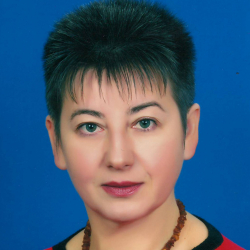
Past Simple vs Present Perfect
Past Simple
The past simple is used for actions which happened in the past and are not related to the present.
Present Perfect
For an action which happened at a definite time in the past. The time is stated, already known or implied.
We use the past simple:
The present perfect is used for actions which happened in the past and are related to the present.
For an action which happened at unstated time in the past. The exact time is either unknown or unimportant, and therefore it is not mentioned or implied.
For an action which began and finished in the past.
We use the present perfect:
For an action which started in the past and continues up to the present, especially with state verbs , such as have, like, know, be, etc.
Simon Cook has painted a lot of pictures.
Simon Cook painted his first picture in 1980.
(When? We don’t know. The exact time is not mentioned or implied)
They have been friends for twenty years. (They met each other twenty years ago and they are still friends.)
George Barns was a basketball player for ten years. ( He is no longer a basketball player. He is a coach).
(When? In 1980. The time is stated.)

Past Simple vs Present Perfect
Past Simple
For past habits or states which are now finished.
The past simple is used for actions which happened in the past and are not related to the present.
Present Perfect
The past simple is used with the following time expressions:
For an action which has recently finished and whose result is visible in the present.
The present perfect is used for actions which happened in the past and are related to the present.
We use the past simple:
We use the present perfect:
Kitchens were to be very different a hundred years ago.
She has just washed her hair. (She has now wrapped her hair in a towel, so the action has finished.)
yesterday, the day before yesterday, last week (month, year, etc.), a week (a month, a year, etc.) ago, the other day, in 1990, when, etc.
The present perfect is used with the following time expressions:
ever, never, just, already, yet, recently, lately, before, always, so far, at last, today, this week (month, year, etc.), since, for, how long, all my life, all morning, etc .

Past Simple
Употребление
Действия, которые произошли в указанный период времени в прошлом; регулярные действия, привычки, постоянные ситуации в прошлом
Present Perfect
Ключевые слова
Действия, завершившиеся к настоящему моменту и тесно с ним связанные; действия и состояния, продолжавшиеся в течение некоторого времени до настоящего момента (с глаголами, которые не употребляются в Continuous)
yesterday, the day before yesterday, last week (month, year, etc.), a week (a month, a year, etc.) ago, the other day, in 1990, when, etc.
Инфинитив
Утвердительное предложение
To V
ever, never, just, already, yet, recently, lately, before, always, so far, at last, today, this week (month, year, etc.), since, for, how long, all my life, all morning, etc .
To have + V₃
S + Vеԁ/V₂ S - подлежащее
Отрицательное предложение
Общий вопрос
I/We/You/They + have + V₃
S + didn’t + V
Спец. вопрос
Did + S + V…?
He/She/It + has + V₃
I/We/You/They + haven’t + V₃
He/She/It + hasn’t + V₃
Have + I/We/You/They + V₃…?
WH + did + S + V …?
Вопрос к подлежащему
Has + He/She/It + V₃ …?
WH + have/has + S + V₃ …?
WHO/WHAT + Vеԁ/V₂ …?
WHO/WHAT + has + V₃ …?




















